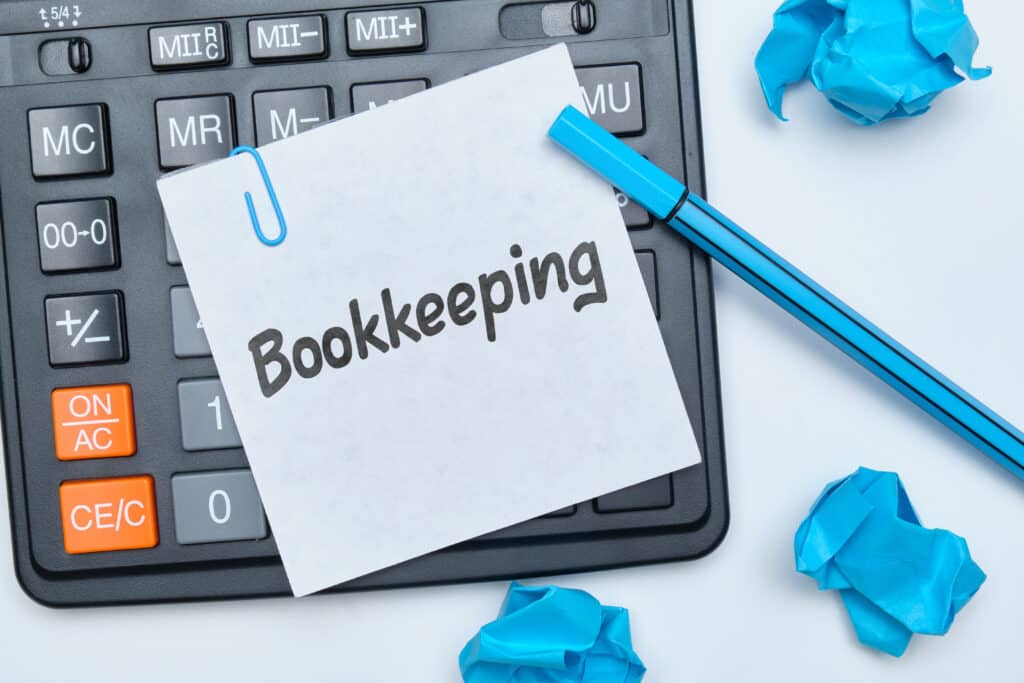
Looking to maximize your startup’s success? Want to save time during tax season and secure investors? Bookkeeping is the key to unlocking your startup’s potential.
In this article, we explore the benefits of bookkeeping for startups, the difference between accounting and bookkeeping, choosing the right business entity and accounting method, and the importance of accurate financial records.
By keeping track of your business’s financial health, you can make informed decisions that drive your startup toward success.
Key Takeaways
- Bookkeeping is essential for startups as it helps in setting up for successful tax benefits and saves time and headaches during tax season.
- Bookkeeping allows startups to track their business financial health and make informed business decisions.
- Good bookkeeping improves the chances of securing investors by providing accurate financial data for reports.
- Startups need to carefully choose their business entity and accounting method based on their risk level, tax benefits, and future outlook.
What is Bookkeeping
Bookkeeping is the systematic recording and classification of a company’s financial transactions, forming the foundation of its financial management. It involves documenting income, expenses, assets, and liabilities in an organized manner. For instance, when a business makes a sale, the bookkeeper credits the revenue account, and when expenses are incurred, relevant accounts are debited.
This process ensures a clear, chronological trail of financial activities, facilitating accurate financial reporting and analysis. With precise bookkeeping, businesses can monitor cash flow, identify areas for cost savings, and comply with regulatory requirements.
An illustrative example of bookkeeping involves tracking a company’s monthly expenses. If a business pays $1,000 for office rent, the bookkeeper records a debit of $1,000 to the rent expense account. Simultaneously, if the company receives $2,000 from a client, a credit of $2,000 is made to the revenue account.
These meticulous entries contribute to the creation of financial statements, providing a comprehensive overview of the company’s financial performance. Bookkeeping is a vital aspect of financial management, offering businesses the insights needed for informed decision-making and sustainable growth.
Benefits of Bookkeeping for Startups
One of the key benefits of bookkeeping for startups is that it allows you to set yourself up for successful tax benefits. By using bookkeeping software and organizing your expenses, you can ensure that you have accurate and up-to-date financial records.
This is important because it enables you to track your business’s financial health and make informed decisions. With organized expenses, you can easily identify deductible expenses and maximize your tax deductions.
Additionally, having well-maintained financial records can save you time and headaches during tax season. By staying organized and utilizing bookkeeping software, you can streamline the tax preparation process and minimize the risk of errors.
This not only saves you valuable time but also improves your chances of securing investors who value innovation and efficiency.
Accounting Vs Bookkeeping
To understand the distinction between accounting and bookkeeping, you need to know that accounting deciphers financial records for taxes and decision-making, while bookkeeping ensures complete tracking of income and expenses. Both are essential for all businesses, but they serve different purposes.
Accountants help create financial reports, using the information provided by bookkeepers. Good bookkeeping provides accurate data for these reports, enabling businesses to make informed decisions and comply with tax obligations.
In order to streamline the bookkeeping process, many startups are turning to accounting software, which automates tasks and improves efficiency. This software also facilitates financial reporting, allowing startups to generate comprehensive statements that provide an overview of their financial health.

Things to be considered
Choosing a Business Entity
When choosing a business entity, it’s important to consider the level of risk and personal asset protection you require. Different business structures offer varying degrees of liability protection for their owners.
For low-risk businesses, a sole proprietorship may suffice. However, if you desire personal asset protection, an LLC (Limited Liability Company) or C corporation would be more suitable.
An LLC provides medium to higher-risk businesses with liability protection, while a C corporation is ideal for those seeking to raise money and potentially go public but comes with double taxation. Additionally, an S corporation can help you avoid double taxation.
It’s crucial to carefully evaluate the benefits and drawbacks of each structure before making a decision. Consulting with a professional CPA can provide valuable guidance in choosing the right business entity for your startup.
Choosing an Accounting Method
Consider the clarity and future outlook of your business when choosing an accounting method. This decision will impact how you track income and expenses, and it can have tax implications as well. The two main methods to choose from are cash basis and accrual basis.
| Cash Basis | Accrual Basis |
| Records income and expenses when received | Records income and expenses when earned |
| Simple and straightforward | More complex, but provides a more accurate picture of financial health |
| May not reflect the true financial position of the business | Provides a more comprehensive view of the business |
| Suitable for small businesses with straightforward transactions | Suitable for businesses with larger revenue and more complex transactions |
| Consult a CPA for guidance on the best method for your business | Consulting a CPA can help you make an informed decision |
Consulting a CPA is crucial, as they can provide guidance based on your specific business needs and goals. They can help you understand the advantages and disadvantages of each method and assist in choosing the one that offers the best tax breaks and aligns with your long-term financial objectives.
Financial Records and Bookkeeping Checklist
Keep track of all your financial records to ensure accurate bookkeeping and maintain a healthy financial outlook for your startup.
Keeping financial records organized is essential for effective strategies in bookkeeping management. To achieve this, you must store invoices, bills, receipts, and statements in a secure and easily accessible manner.
Maintain proof of payments and cancel checks, as well as previous tax returns and W2/1099 forms. It’s recommended to store these records for at least three years, or longer if there’s a possibility of future questions.
Enter all transactions into bookkeeping software or a spreadsheet, ensuring accurate categorization and regular updates.
File or digitize receipts to provide proof of expenses. Reconcile your bank accounts monthly to ensure accuracy and detect any discrepancies.
Additionally, make it a practice to send invoices, pay bills, and follow up on unpaid invoices regularly.
Setting Up for Tax Benefits
To maximize your startup’s tax benefits, ensure that you set up your bookkeeping system accurately and consistently.
Maximizing tax deductions and utilizing tax credits efficiently is essential for innovative businesses seeking to optimize their financial outcomes.
Implementing a meticulous and detail-oriented bookkeeping process will enable you to identify and categorize all eligible expenses and deductions.
By accurately tracking your income and expenses, you can claim deductions for business-related costs such as office supplies, marketing expenses, and professional fees.
Additionally, staying up to date with tax regulations and incentives will help you take advantage of tax credits, such as those for research and development or renewable energy investments.
Saving Time and Headaches During Tax Season
To save time and avoid headaches during tax season, it’s crucial that you stay organized and keep your financial records up to date.
Maximizing deductions and organizing your financial documents are key strategies for streamlining the tax preparation process. By keeping accurate and detailed records of your income and expenses throughout the year, you can easily identify deductible expenses and ensure that you don’t miss out on any potential tax benefits.
Use bookkeeping software or a spreadsheet to record all transactions and categorize them accurately.
Additionally, make sure to store invoices, bills, receipts, and statements in a secure and easily accessible manner.
Tracking Business Financial Health
Track the financial health of your business to make informed decisions and ensure long-term success. Financial tracking is of utmost importance as it allows you to measure your business performance and identify areas for improvement. By monitoring key financial metrics, you can gain valuable insights into the profitability, liquidity, and efficiency of your operations. To help you visualize the significance of financial tracking, consider the following table:
| Financial Metric | Calculation | Significance |
| Gross Profit Margin | (Revenue – Cost of Goods Sold) / Revenue | Indicates the profitability of your products or services. |
| Current Ratio | Current Assets / Current Liabilities | Measures your ability to cover short-term debts. |
| Return on Investment (ROI) | (Net Profit / Total Investment) x 100 | Evaluates the profitability of your investments. |
Consulting a CPA for Guidance
Consulting with a CPA can provide valuable guidance for startups in navigating their financial decisions and ensuring compliance with tax regulations. A Certified Public Accountant (CPA) is a trusted professional who can offer expert advice on accounting and tax matters.
When it comes to choosing an accounting method, the guidance of a CPA can be invaluable. They can help you assess the pros and cons of the cash basis and accrual basis methods, considering the clarity and future outlook of your business.
| Consulting a CPA for Guidance | Accounting Method Guidance |
| Assess pros and cons | Cash basis vs accrual basis |
| Consider business needs | Clarity and future outlook |
| Obtain expert advice | Best tax breaks |
Frequently Asked Questions (FAQ)
What Are the Consequences of Not Keeping Accurate Financial Records for a Startup?
Not keeping accurate financial records for your startup can have serious consequences. Without proper record keeping, you risk facing financial inaccuracies, tax penalties, inability to make informed decisions, and difficulty obtaining funding.
How Can Bookkeeping Help Startups in Managing Their Cash Flow?
Bookkeeping is vital for startups in managing cash flow. It allows you to track financial transactions, analyze income and expenses, and make informed decisions. With accurate financial tracking, you can optimize cash flow and ensure business success.
Can Bookkeeping Software Be Used for Both Cash Basis and Accrual Basis Accounting Methods?
Yes, bookkeeping software can handle both cash and accrual basis accounting methods. It offers cost-effective solutions for startups, allowing you to track income and expenses accurately, make informed decisions, and maximize tax benefits.
How Can Bookkeeping Help Startups in Measuring Their Profitability and Identifying Areas for Improvement?
Bookkeeping helps startups measure profitability and identify areas for improvement. Through profitability analysis, you can track income and expenses, analyze financial trends, and make data-driven decisions to implement improvement strategies and drive innovation.
Final Words
In conclusion, bookkeeping is a crucial tool for startups to maximize their success. By keeping accurate financial records, startups can make informed decisions, save time during tax season, and improve their chances of securing investors.
It’s essential for all businesses, regardless of their size or industry. By understanding the difference between accounting and bookkeeping, choosing the right business entity and accounting method, and tracking their financial health, startups can unlock their full potential and drive towards success.
Consulting a CPA for guidance can further enhance their bookkeeping practices.







